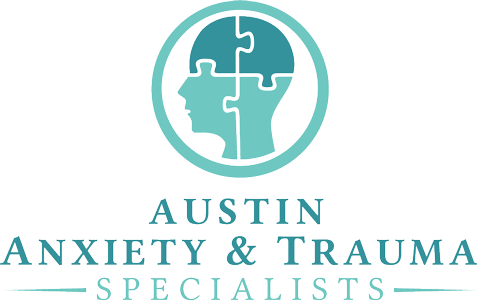In our fast-paced, often individualistic society, it’s easy to feel isolated when facing life’s challenges, particularly when it comes to mental health struggles. The saying “It takes a village” is often associated with raising children, but it can also apply to the communal efforts needed for mental well-being. Just like a supportive community can nurture a child’s development, a collective environment can be a powerful force in your journey toward emotional and psychological health. And research agrees.
Recent and historical studies point to the efficacy of group therapy in treating a wide range of issues, including anxiety, obsessive-compulsive disorders (OCD), depression, post-traumatic stress disorder (PTSD), bipolar disorder, schizophrenia, panic disorders, and more. Yalom and Leszcz argue in The Theory and Practice of Group Psychotherapy that group therapy offers a “triple E treatment,” meaning that it is:
- Effective compared to no treatment
- Equivalent to other active treatments, including individual therapy
- Efficient in both time and cost
So, what is it about group therapy that makes it so impactful, and how exactly does it work? Let’s delve deeper into its dynamics and benefits.
Read: In-Person vs. Online Therapy: Is Virtual Counseling Effective?
What is group therapy and how does it work?
Group therapy is a form of psychotherapy that involves one or more therapists working with a group of clients at the same time. It can be used to address a range of psychological issues, from anxiety and depression to addiction and grief. The group typically consists of individuals who share common challenges or mental health disorders, providing a platform for collective understanding and healing.
Sessions typically unfold in a comfortable, private setting with 6 to 12 participants seated in a circle to encourage open communication. Led by a trained therapist, sessions often start with personal check-ins, then delve into specific topics or open-ended discussions, lasting usually between 60 to 90 minutes. Like private therapy, sessions might include homework tasks for reflection or skill-building between meetings.
Confidentiality is paramount for ensuring a safe space for sharing experiences and emotions. Over time, participants often develop a deep sense of trust and camaraderie. This growing bond fosters a supportive atmosphere, which encourages vulnerability and can enrich the therapeutic journey.
Read: Guide to Building Your Social Support System (And How to Ask for Help)
Benefits of group therapy
Validation and normalization
One of the most profound benefits of group therapy unique to this treatment is the realization that you are not alone in your struggles. Hearing others articulate feelings or experiences similar to your own can provide immense relief. This understanding can help dispel feelings of isolation, reinforcing the idea that others have faced, endured, and overcome similar challenges.
Diverse perspectives
Every individual brings a unique perspective based on their life experiences. In a group setting, you can glean insights from a variety of viewpoints. This can help you better understand your own emotions and issues, and provide alternative strategies for coping and healing.
Learning through observation
Sometimes, it’s easier to understand a concept when we see it in action. In group therapy, observing how others handle conflict, express emotions, or communicate can serve as a practical lesson. These insights can be integrated into your own life, enhancing personal growth and emotional intelligence.
Fostering social skills
For those who struggle with social interactions, group therapy offers a safe space to practice interpersonal skills. Regular interactions within the group can boost confidence and improve one’s ability to communicate and relate to others.
Supportive environment
A therapy group often becomes a pillar of support. Members rally around each other, cheering successes and providing solace during challenging times. This supportive environment can be a significant catalyst for change, reinforcing positive behaviors and offering encouragement during setbacks.
Cost-effective
While this might seem a more pragmatic benefit, it’s worth mentioning. Group therapy can be more affordable than individual therapy, making it accessible for those who might be constrained by budget.
Emotional release
Sharing personal stories, struggles, and triumphs within the group can be immensely cathartic. The very act of vocalizing your experiences can be healing, and doing so in a supportive group environment can amplify this effect.
Guidance from a skilled therapist
The difference between a support group and a therapy group is that the latter is facilitated by a professional therapist and the goal is to provide therapy, not just support. While the group provides diverse perspectives, the therapist brings clinical expertise, guiding conversations, identifying patterns, and introducing therapeutic techniques. Participants are able to learn both from the experiences of the group and the specialized knowledge of the therapist.
Read: 5 Benefits of Going to Therapy Even When You Feel “Fine”
Is group therapy right for you?
The journey to healing is deeply personal, and so is finding the right approach. Group therapy offers a unique blend of peer support and professional guidance, but it isn’t a universal remedy. Some individuals may prefer the private nature of individual therapy, particularly those who are not yet comfortable with vulnerability. Here are a few considerations to help determine if it’s the right fit for you:
- Do you want to break the isolation?
- Do you find comfort in knowing others may share similar struggles?
- Are you open to sharing your feelings in a group and listening to others?
- Are you able to commit to regular sessions?
- Are you open to feedback from peers?
- What does your healthcare provider recommend?
Living with mental health conditions like depression, anxiety, or PTSD can feel hopeless and isolating. But it doesn’t have to be like that. Group therapy offers a uniquely unifying and supportive environment to share, learn, and grow alongside others facing similar challenges, all under the guidance of specialists.
It’s time to seek the support you need—and deserve. Our therapists at Austin Anxiety and Trauma Specialists offer individual and group therapy to Texas residents. Get in touch if you’re considering joining a group. Remember, you’re not alone. Things can get better. We can help.






